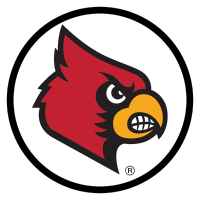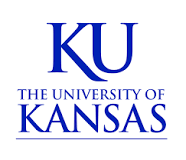- Find Your College
- Scholarships
- Pay for College
-
Articles
- COLLEGES
- Most Recent
- Affordability & Cost
- College Search
- Comparisons
- College Majors & Minors
- Myths
- News & Trends
- Tips, Tools & Advice
- Admissions
- Most Recent
- ACT & SAT
- College Admissions
- College Applications
- Myths
- Online Colleges
- Questions & Answers
- About
- Home
- >
- Browse All Majors
- >
- Biological And Biomedical Sciences
- >
- Pharmacology and Toxicology
- >
- Pharmacology and Toxicology
Pharmacology and Toxicology
Select Type of Degree:
Select State:
|
#1

University at Buffalo
|
|||||||||||
|
#2

Saint Joseph's University
|
|||||||||||
|
#3

Michigan State University
|
|||||||||||
|
#4

Wright State University-Main Campus
|
|||||||||||
|
#5

Long Island University
|
|||||||||||
|
#6

University of California-Davis
|
|||||||||||
|
#7

University of Louisville
|
|||||||||||
|
#8

University of California-Irvine
|
|||||||||||
|
#9

University of Kansas
|
|||||||||||
|
#10

University of Arizona
|
|||||||||||
|
#11

The University of Texas Medical Branch at Galveston
|
|||||||||||
|
*The estimated net prices above are College Raptor’s estimate. Please contact the college financial aid office for actual net cost figures.
|
|||||||||||
About Pharmacology and Toxicology
A program with an integrated, combined approach to the study of pharmacological and toxicological issues in biology and the biomedical sciences. Includes instruction in topics such as solvents, xenobiotic metabolism, chemical toxicity, neurotoxicology, immunopharmacology, biotransformation, tissue culture and in vitro studies, biomolecular analysis, bioactivation and inactivation, enzyme regulation, chemoprevention and chemotherapy, industrial and chemical studies, radiation health, and bioinformatics.
Of the 102 Pharmacology and Toxicology degrees granted each year at the Masters degree level, women make up 66% percent and men make up 34% percent of the area of study. Did you know that Michigan has more students graduating with a degree in Pharmacology and Toxicology than any other state in the US? In fact, Michigan awarded 32 degrees last year! The average starting salary for an undergraduate degree in Pharmacology and Toxicology is $42,090.
Careers
Some of the highest paying jobs for Pharmacology and Toxicology majors include Health Specialties Teachers, Postsecondary, Medical Scientists, Except Epidemiologists . However, something else to think about is how much demand there is for specific jobs. Positions that are in high need that a degree in Pharmacology and Toxicology can prepare you for are Health Specialties Teachers, Postsecondary, Medical Scientists, Except Epidemiologists .
Top Paying Careers
These are the highest paying careers for Pharmacology and Toxicology majors.
Most In-Demand Careers
These are the careers in highest demand for Pharmacology and Toxicology majors.
Student Demographics




Subscribe to Our Newsletter
Join thousands of students and parents learning about finding the right college, admissions secrets, scholarships, financial aid, and more.

College Raptor, Raptor, InsightFA, FinanceFirst, and “The Right College. The Best Price.” are registered trademarks of College Raptor, Inc.




